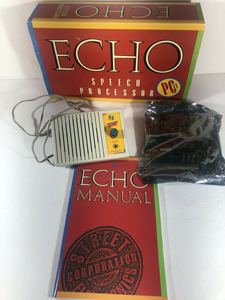Reply 20 of 27, by bristlehog
- Rank
- Oldbie
I think Echo PC II should be supported by lots of games for PCM sound output, as there's DIGPAK (by John Ratcliff) support. I'm going to check that soon as Echo PC II is coming my way, but Cloudschatze must have checked it already.
About Hearsay 1000 compatible games: I'll test them out, but first it seems I have to acquire a period-adequate PC. My IBM 300GL PII-400 just can't do it, since the games usually are not coded to run on such systems, they're not tied to timer or video vertical blank, and run like there's a stuck fast forward button.
My first PC was 486 DX4-100 back in 1995, and everything before that is obscure for me. Do I need a fast 286 to check whatever games were there in the late 80's? Or is it a slow 386? A fast 386? A slow 486? I believe that 486 CPU appeared in the late 1989, but don't think it reached the general masses any soon.
Hardware comparisons and game system requirements: https://technical.city
